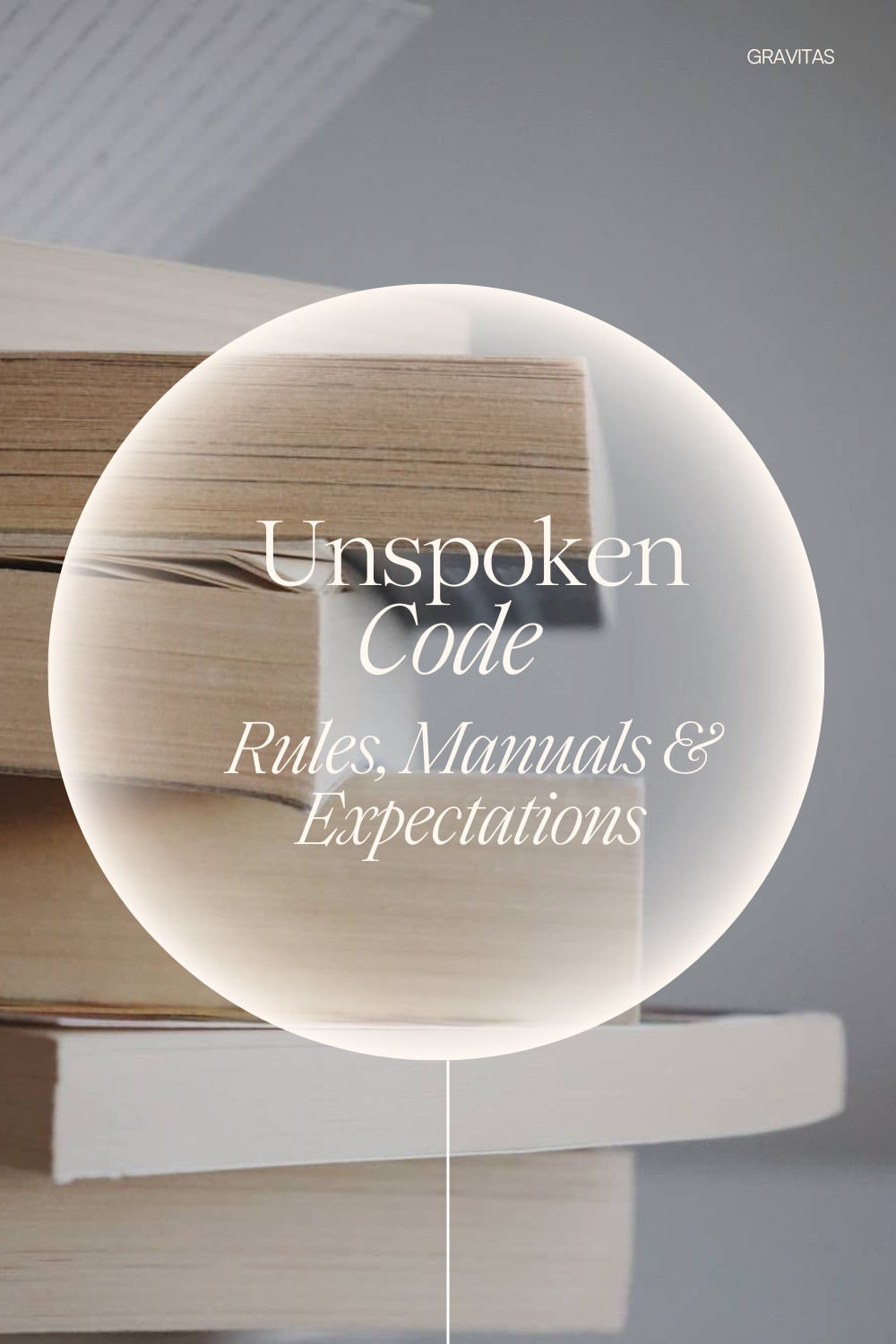Unspoken Code: Rules, Manuals & Expectations
On Judgment….
"Everyone seems to have a clear idea of how other people should lead their lives, but none about his or her own."
- Paulo Coelho
Expectations are a natural aspect of human relationships. They are shaped by our values, backgrounds, and the lessons we have learned along the way. They influence how we view the world and how we engage with others. Yet, if we start using expectations as yardsticks to judge the actions and perceived value of others, this will naturally result in a series of disappointments in both our personal and professional lives.
In our personal lives, especially in the relationships that are closest to our hearts, unspoken and unrealistic expectations often lead to conflict. When we expect our partners, friends and loved ones to know what we want or need, without expressing it, we set the stage for misunderstandings. Imagine setting up a game where only you are privy to the rules, leaving the other players clueless. Each individual's unique perspective and capacity to meet expectations vary, and assuming they align perfectly with our own can create unrealistic standards.
“While earning my coaching certification, I learned a concept that truly struck a chord with me. I immediately recognized it as a pattern present in many aspects of my life. I essentially had a “manual”—a personal, unspoken code of conduct I secretly wished others would adhere to, which I believed would make me feel safe, satisfied, and happy.”
Manual holders typically do not communicate the details of their personal manual to others, partly because they are not always conscious of having one, or the unease it causes them when its conditions go unfulfilled. There is an assumption that others should instinctively understand how to operate around them. While it is natural to have expectations, tying our emotional well-being to someone else's actions can lead to dissatisfaction and strain in our relationships. The idea of a manual is rooted in the assumption that our happiness hinges on others changing their behavior to make us feel comfortable. However, in doing so we relinquish control of our emotions to someone else, essentially becoming powerless. That poignant lesson taught me that the actions of others have zero emotional impact on me until I interpret and assign meaning to it.
Professionally, I have observed how both spoken and unspoken expectations can greatly influence corporate culture. Leaders who set the bar high can inspire excellence, yet they may also perpetuate an environment brimming with tension and stress. Similarly, employees who expect constant recognition or rapid advancement, without aligning it with their efforts and contributions, often find themselves disenchanted.
In a broader societal context, expectations can easily develop into biases. When we box people into categories based on their background, or socioeconomic status, among other attributes, we constrain not just their potential, but our own. We deprive ourselves of the wealth that lies in diverse experiences and the opportunities for learning that often come with embracing varied viewpoints.
To navigate the world of expectations, self-awareness and empathy are key —being mindful of where our expectations derive from, examining whether they are fair, and if they are aligned with the realities of those we place them on. Communication is the linchpin here—through open, empathetic, and honest dialogue we can develop a better understanding of one another and build stronger, more respectful relationships. While expectations are an integral part of our lives, managing them with care and understanding is essential. It's about setting expectations that are not just aspirational, but also grounded in realism. By doing so, we cultivate healthier personal relationships, more supportive professional environments, and a society that values and respects individuality and diversity of thought.
Ditch the manual.


